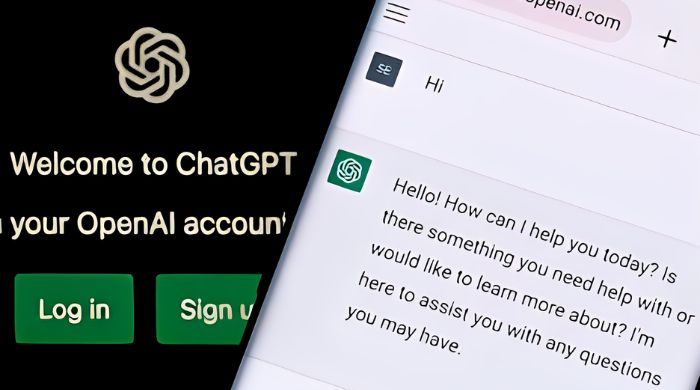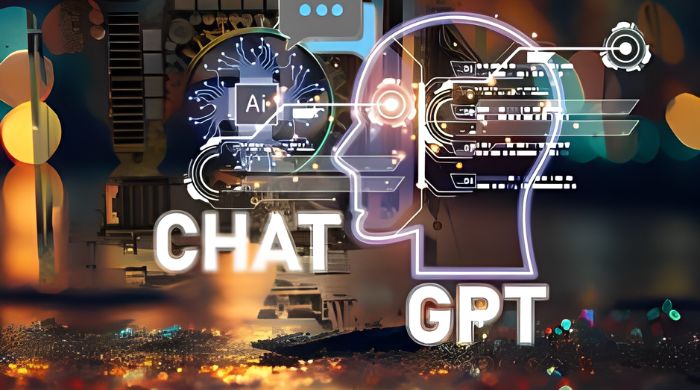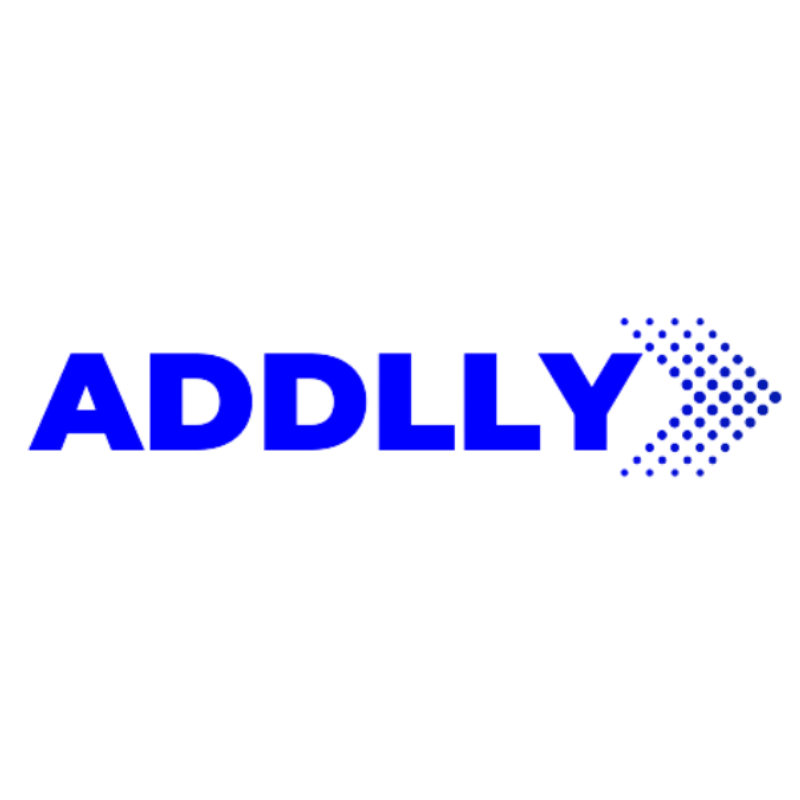Content creation in today’s digital world requires efficiency and effectiveness. To meet these demands, content creators have started using AI content tools like ChatGPT to create content, social media posts, blog post, and much more. ChatGPT is a powerful AI language model that has emerged as one of the best AI writer, enabling creators to generate ideas, enhance the quality of their content, and revolutionize customer interactions.
As content creation continues to evolve, ChatGPT has emerged as a versatile tool that empowers content creators with its vast capabilities. It helps in idea generation, provides content, and transforms customer interactions. However, human content creators and marketers must use the tool responsibly and must remain vigilant to ensure accurate and unbiased content.
In this article, we’ll deep dive into the impact of ChatGPT on content creation and explore how it will continue being a game-changer in the content industry.
Using ChatGPT for Content Creation and Marketing Campaigns
ChatGPT has revolutionized the marketing and content creation industry by offering a multitude of innovative ways to enhance productivity and engage with the target audience. Leveraging the power of natural language processing (NLP) and AI technology, content creators can unlock new possibilities to create compelling content and drive business growth. Here’s a quick recap of how this valuable tool is currently being used:
1. Brainstorming and Generating Ideas
ChatGPT can act as a virtual brainstorming partner, helping writers overcome the dreaded writer’s block. By reading your prompts and responding to queries, it assists in generating unique and creative content ideas, saving time and effort in the ideation phase.
Additional information: How to Write ChatGPT Prompts
2. Improving Content Quality and Style
Creating content that is grammatically and factually correct is important for engaging readers. ChatGPT’s language generation capabilities can assist content creators in generating well-written, grammar-perfect content. It offers suggestions for improving sentence structure, vocabulary, and overall writing style to help deliver polished content.
3. Automating Content Research
Researching and gathering information is a time-consuming aspect of content creation. With ChatGPT, content creators can streamline this process. By inputting specific queries, the tool provides relevant information, summaries, and credible sources, saving writers significant research time.
4. Personalized Customer Interaction
Content creators and businesses can leverage ChatGPT’s chatbot capabilities to provide personalized customer interactions. By training the model with industry-specific information and customer FAQs, brands can offer round-the-clock customer support. As a natural language processing tool, ChatGPT can provide human-like responses that engage and assist customers.
5. Multilingual Content Creation
ChatGPT’s language capabilities now extend beyond English. It can be trained on multilingual datasets, enabling content creators to generate content in different languages. This functionality is especially beneficial for businesses with a global audience, allowing them to create localized content with ease, reaching and engaging diverse markets.
6. SEO Optimization and Keyword Research
Marketers are well aware of the importance of SEO optimization and keyword research in driving organic traffic and improving search engine rankings. ChatGPT, with its powerful algorithms and NLP capabilities, can play a valuable role in optimizing content for search engines with long-tail keyword research, semantic keyword expansion and competitor analysis.
By incorporating ChatGPT into their content creation and marketing workflows, content creators and businesses can leverage its NLP capabilities to unlock new levels of creativity, efficiency, and engagement. From brainstorming to customer interactions, ChatGPT proves to be an indispensable tool in the evolving landscape of content creation.
Additional information: Is AI Generated Content Good for SEO
Training Case Studies: ChatGPT for Successful Content Creation
ChatGPT has proven to be a valuable asset for many businesses, empowering them to create impactful and engaging content. If you’re still wondering why, here are some real-world case studies that highlight the successful utilization of ChatGPT in content creation and marketing:
Utilization: Streamline Writing Process and Boost Blog Posts
A popular travel blogger wanted to streamline their content creation process and deliver captivating blog posts regularly. They integrated ChatGPT into their workflow to generate ideas, receive feedback, and improve their writing style.
Result: The blogger reported a significant increase in productivity, with the tool assisting in brainstorming new topics and providing suggestions to enhance their content.
Utilization: Create eCommerce Product Descriptions at Scale
An eCommerce business aimed to optimize their product descriptions to improve conversions. They employed ChatGPT to generate engaging and persuasive product descriptions, by providing the model with relevant information and product specifications.
Result: The business received error-free descriptions that highlighted the unique selling points of each product, leading to an increase in customer engagement, thus boosting sales and revenue for the business.
Utilization: As a Customer Support Chatbot
A technology company wanted to enhance their customer support operations. They trained ChatGPT to understand customer queries and respond with accurate and helpful information. The chatbot, powered by ChatGPT, successfully resolved customer inquiries, providing a seamless and personalized support experience.
Result: Customers praised the chatbot’s ability to to hold human-like conversations while providing the correct answer to their queries. This led to improved customer satisfaction and reduced support costs.
Utilization: For Multilingual Content Localization
A global news agency sought to expand its reach by creating localized content in different languages. They utilized ChatGPT to generate translated versions of their articles, ensuring cultural sensitivities and language nuances were accurately maintained.
Result: By leveraging ChatGPT’s multilingual capabilities, the news agency was able to cater to diverse audiences, increasing reader engagement and attracting a broader international readership.
According to a Nielsen study, companies that apply AI see an increase in productivity by up to 66% and healthier business returns. These case studies illustrate the diverse applications and successes achieved by integrating ChatGPT into content creation workflows and marketing strategies. With the power of NLP and ChatGPT’s capabilities, businesses and content marketers can achieve remarkable results, driving engagement, and achieving their goals.
Also read about: Best AI SEO Tools: Boost Your Website’s Rankings with AI
ChatGPT-generated Text: Understanding the Role of Accuracy and Credibility
While ChatGPT offers immense potential as a content creation tool, it is important to consider the vital aspects of accuracy and credibility in the information it generates. Understanding the limitations of ChatGPT’s responses is essential for businesses to ensure the reliability and trustworthiness of the content. Here are some factors to note in terms of accuracy and credibility when working with ChatGPT-generated text:
1. Be Aware of Data Training and Biases
ChatGPT learns from vast amounts of text data to generate responses. However, this training data can introduce biases or inaccuracies. It is important for content creators to be aware of this and take measures to mitigate potential biases in the information provided by ChatGPT. By corroborating the information with reliable sources and conducting additional research, content creators can ensure the accuracy and credibility of the content they produce.
2. Always Review and Fact-Check
ChatGPT’s responses should be reviewed and fact-checked by content creators before being published or shared. Writers should critically assess the generated text for factual accuracy and verify information independently. This step is crucial to maintain credibility and prevent the spread of misinformation. ChatGPT should be seen as a tool to assist, rather than a completely reliable source of information.
3. Transparency and Disclosure
Content creators should be transparent with their audience when utilizing ChatGPT or similar AI tools. Disclosing the involvement of AI in the content creation process helps establish trust and manage audience expectations. By acknowledging the limitations of AI-generated content, businesses and content creators can maintain transparency and ensure responsible use of these tools.
While ChatGPT offers tremendous value as a content creation tool, responsibility lies with human users to verify information, mitigate biases, and ensure the accuracy and credibility of the content they produce. It is also worth ensuring that content is plagiarism free to avoid any misuse of data or content by another party.
Analyzing the Future of Content Creation with ChatGPT: Opportunities and Challenges
The future of content creation will remain intertwined with the advancements in NLP and AI-powered tools like ChatGPT. As the technology continues to evolve, new opportunities and challenges arise. Here are some of the potential opportunities and challenges it presents:
1. Dynamic and Personalized Content
ChatGPT’s language generation capabilities allow for the creation of personalized and dynamic content. By tailoring responses to specific audience segments or individual preferences, content creators can deliver highly targeted content that resonates with the readers. This level of personalization can significantly enhance audience engagement and foster a deeper connection with the readers.
2. Ethical Use and Mitigating Biases
However, as AI technology progresses, humans must remain vigilant about the ethical use of tools like ChatGPT. One important challenge is mitigating biases in the generated content. Developers and user need to actively work on reducing biases that may arise from the training data. Striving for inclusivity and diverse perspectives can help mitigate potential biases and enhance the credibility of the content.
3. Maintaining a Human Touch and Authenticity
While ChatGPT can generate coherent and high-quality content which you can post on your social media platforms as well, preserving the human touch and authenticity in content remains crucial. Content creators must strike a balance between utilizing AI tools and injecting their own unique human creativity, insights, and experiences. Incorporating this ensures that the content reflects the creator’s voice and maintains a connection with the audience.
4. Continuous Advancements and Adaptability
The field of NLP and AI tools like ChatGPT continue to evolve rapidly. It is essential for content creators and businesses to stay updated with the latest advancements and adapt their content creation strategies accordingly. Remaining flexible and open to embracing emerging technologies ensures that content creators can leverage the most cutting-edge capabilities of ChatGPT and other content creation tools.
The future of content creation with ChatGPT continues to be promising, as it offers opportunities to create unique, optimized content. However, it also presents challenges related to ethics, biases, and authenticity. But navigating these challenges and embracing the potential of AI-generated text responsibly, leads to unlocking new possibilities to shape the future of content creation.
ChatGPT: An Innovative AI-Powered Tool
ChatGPT has emerged as a strong force in the realm of content creation tools. There’s no denying that the tool’s language generation capabilities facilitate the creation of well-written, engaging content that resonates with the target audience. Business Insider reports that over 40% of professionals have used the tool at work.
However, using ChatGPT and similar AI-powered content creation tools requires a responsible approach. Humans must ensure the generated text’s accuracy and credibility. While ChatGPT offers immense potential, we must be aware of potential biases and continually strive for inclusivity and unbiased content creation.
The future of content creation with ChatGPT looks promising, with opportunities for enhanced creativity, personalization, and automation. Challenges such as ethical considerations and maintaining authenticity will continue to be addressed as the field progresses. While mindful of the challenges, successfully implementing ChatGPT in content creation strategies can lead to significant advancements in the way content is generated, delivered, and enjoyed.
Author
-
Transform your website and social media presence with the most advanced AI content writing tool.
View all posts







